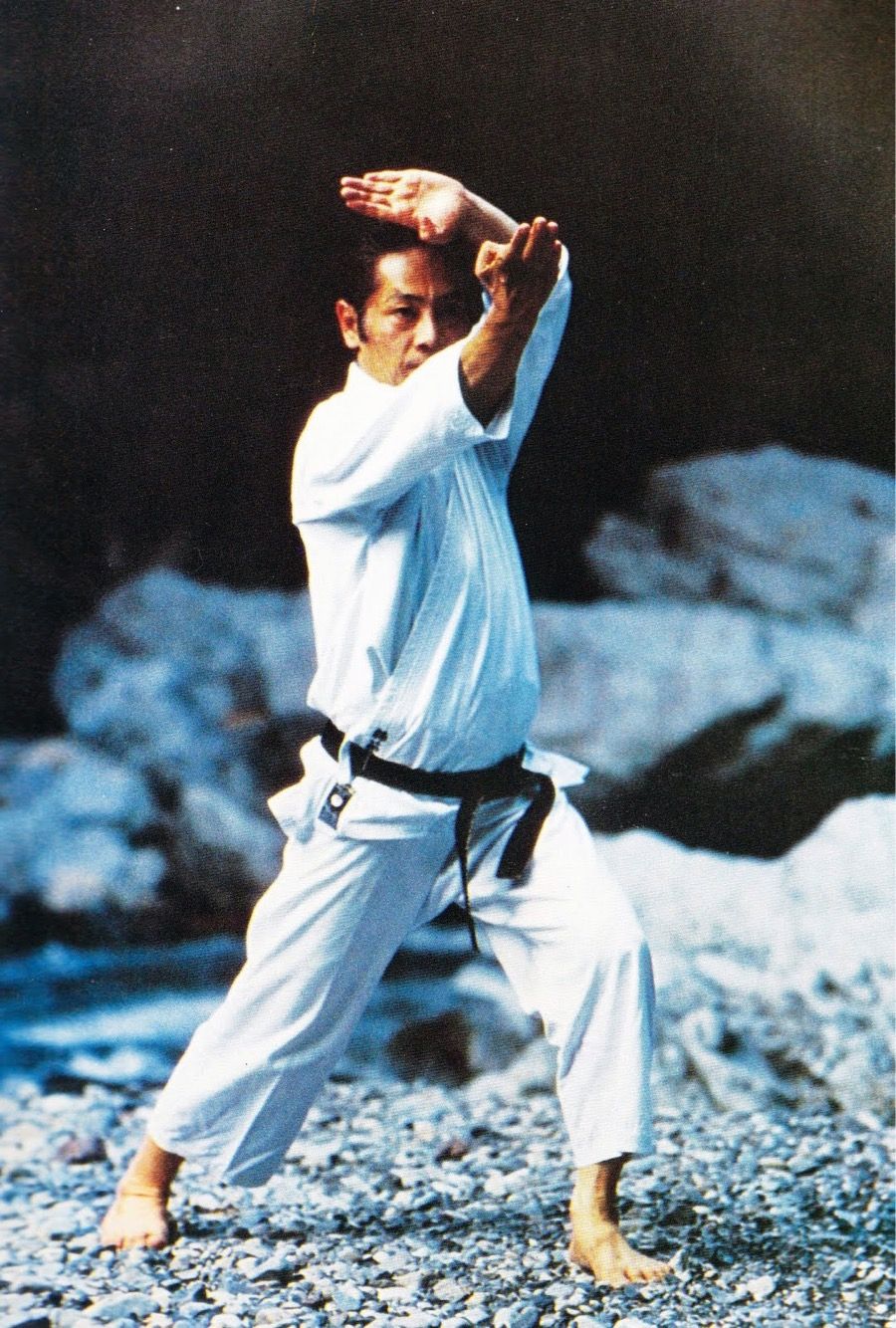Tetsuhiko Asai: A Karate Master's Journey of Dedication and Innovation

Tetsuhiko Asai (1935 - 2006)
Tetsuhiko Asai, born on June 7, 1935, in Ehime Prefecture, Japan, left an indelible mark on the world of Shotokan karate. He was not only a prominent master within the Japan Karate Association (JKA) but also the founder and Chief Instructor of the International Japan Martial Arts Karate Asai-ryu (IJKA) and the Japan Karate Shoto Federation (JKS), formerly known as the Japan Karate Shoto-Renmei. Asai's life and career were defined by dedication to his craft, a spirit of innovation, and a commitment to passing on his knowledge to future generations.
Early Years and the Martial Arts Influence
Tetsuhiko Asai's journey into martial arts began at a young age. He was the eldest of seven children and grew up in a household deeply rooted in martial traditions. His policeman's father imparted his knowledge of judo, kendo, and sojutsu to young Asai. Sumo wrestling also played a role in shaping his early martial education.
At 12, Asai's life turned pivotal when he witnessed a fight between a boxer and a karateka. During this confrontation, he saw the effectiveness of karate techniques, particularly a disabling kick executed by the karate practitioner. This encounter left a lasting impression on him and ignited his interest in karate.
Karate Career and Dedication to Training
In 1958, Tetsuhiko Asai graduated from Takushoku University, where he had the privilege of training under the guidance of Gichin Funakoshi, the founder of Shotokan karate, and Masatoshi Nakayama. His dedication to karate was evident during his university years when he chose to live in the karate dormitory, where he could immerse himself fully in his training.
Recognising Asai's potential, Masatoshi Nakayama, a highly respected figure within the JKA, recommended him for the JKA instructor training program. Asai's commitment and determination paid off as he completed the rigorous course three years later.
In the early 1960s, Asai showcased his exceptional skills by winning the JKA championship in both kumite (sparring) in 1961 and kata (patterns) in 1963. He further solidified his status as a top karateka by becoming the overall JKA champion in 1961, excelling in kumite and ranking second in kata that same year.
One of Asai's notable contributions was introducing karate to Taiwan, expanding the reach of this martial art to new regions. Additionally, he spent five years teaching karate in Hawaii, where his students included Kenneth Funakoshi, a fourth cousin of Gichin Funakoshi.
A Period of Transformation and Leadership
As Tetsuhiko Asai continued to advance within the JKA, he took on the role of Technical Director, becoming instrumental in shaping the organisation's direction. However, the JKA experienced internal divisions following the passing of Masatoshi Nakayama. In response to these changes, Asai and colleagues like Keigo Abe and Mikio Yahara formed a new group within the karate community. In 1999, this group officially became recognised as the JKA.
In 2000, Asai founded the International Japan Martial Arts Karate Asai-ryu and the Japan Karate Shoto-Renmei, later known as the JKS. These organisations would continue his legacy of promoting and preserving the art of Shotokan karate.
Reflection and Legacy
In his later years, Tetsuhiko Asai reflected on the relationships among JKA instructors, particularly those who had graduated from Takushoku University. He noted the diminishing rivalries among his peers and a growing sense of camaraderie, especially in light of the passing of fellow karate pioneers. Asai believed that age and experience had brought them closer together, transcending the official stances and federations that had once divided them.
Final Years and Passing
As Asai's health declined with age, he faced a significant medical challenge, undergoing liver surgery on February 10, 2006. Unfortunately, his condition worsened, and he passed away at 71 on August 15, 2006, leaving behind his wife, Keiko Asai, and their daughter, Hoshimi Asai. His funeral, held on September 1, 2006, at Gokokuji Temple in Tokyo, drew more than 2,000 attendees, a testament to his impact on the karate world.
Posthumously, Tetsuhiko Asai was honoured with the rank of 10th dan by the JKS, recognising his extraordinary contributions to Shotokan karate. His legacy endures through his students and the organisations he founded, carrying forward his dedication to the art and his innovative spirit.
Conclusion
Tetsuhiko Asai's life story is a testament to the power of dedication, innovation, and a commitment to preserving the essence of Shotokan karate. His influence and leadership have left an indelible mark on the martial arts world, inspiring generations of karate practitioners to embrace the values and techniques he held dear. As his legacy lives on through the IJKA and JKS, Tetsuhiko Asai's contributions continue to shape the future of Shotokan karate.
Book a Free Trial Class at Bushido Karate Club
Bushido Karate Club is currently accepting new members. Contact us today to book a trial class in Douglas or Carrigtwohill and begin your karate journey. Places are limited so call today to avoid disappointment.
Tel: +353876307006






